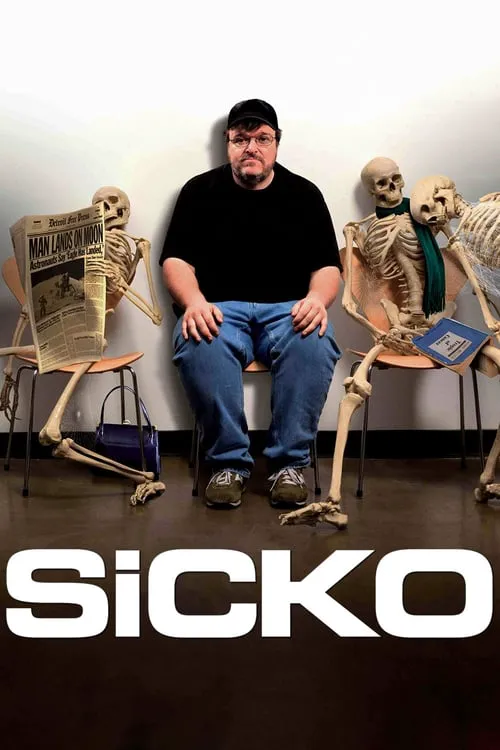Sicko

Plot
Sicko, a scathing documentary by Michael Moore, premiered in 2007, shedding light on the woefully inadequate and exploitative health care system in the United States. Through an exhaustive exploration of real-life cases and personal stories, Moore paints a damning picture of a system that prioritizes profit over people, leaving millions of Americans to struggle with debilitating illnesses and crippling medical bills. The documentary begins by chronicling Moore's own experiences with the US health care system. After receiving a letter from his insurance company informing him that they no longer cover his prostate cancer treatment, Moore becomes an unwitting patient in a system designed to maximize profits at any cost. His insurance company, Prudential, sends him numerous letters, each one stating that his policy no longer covers a different type of treatment or medication. This Kafkaesque nightmare is all too real for millions of Americans, who find themselves trapped in a web of bureaucratic red tape and financial exploitation. One of the most striking aspects of Sicko is its emphasis on the human cost of the failed US health care system. Through poignant interviews and emotional testimonials, Moore shares the stories of individuals and families who have been devastated by the system's inadequacies. There's the young couple struggling to access treatment for their infant daughter's genetic disorder, forced to ration her medication and beg for charity to keep her alive. Or the man who lost everything to the crippling medical bills he incurred after a routine surgery went horribly wrong. These heart-wrenching stories serve as a stark reminder of the devastating impact of a system that prioritizes shareholder profits over human life. Moore also delves into the dark underbelly of the health insurance industry, exposing the cynical tactics used by insurance companies to deny claims and maximize profits. He cites a series of shocking soundbites from industry insiders, who boast about their ability to deny coverage to as many people as possible, knowing that the resulting financial devastation will enrich their bottom line. This callous disregard for human life and well-being is all too common in the US health care system, where the more people you can deny coverage, the more money you make. The film also explores the systemic failures of the US health care system, which is characterized by a patchwork of state-by-state regulations, inefficient bureaucratic processes, and a lack of accountability. Moore highlights the absurdities of the system, such as the fact that Americans spend more on health care than any other developed nation, yet have worse health outcomes and a higher infant mortality rate. He notes that the US is one of the only developed countries that does not guarantee universal health care to its citizens, and that this absence of a safety net has devastating consequences. One of the most compelling aspects of Sicko is its comparison of the US health care system to the publicly-funded systems in other developed nations. Moore travels to France, Britain, and Canada, highlighting the numerous benefits of these systems, including universal coverage, reduced wait times, and improved health outcomes. He interviews patients, healthcare workers, and industry experts, all of whom attest to the success of these systems in providing high-quality, affordable care to all citizens. This stark contrast between the haves and have-nots of the health care world underscores the glaring injustices of the US system. Throughout the film, Moore's characteristic wit and indignation shine through, as he skewers the absurdities of the US health care system and the politicians who perpetuate it. His signature style, complete with sarcastic asides and biting commentary, makes Sicko both entertaining and informative, never shying away from the tough questions or brutal truths. Ultimately, Sicko is a clarion call for change, urging viewers to rethink the failed US health care system and demanding that politicians and industry leaders take responsibility for the devastation they have wrought. By sharing the stories of those who have suffered at the hands of this system, Moore humanizes the abstract issue of health care, making it impossible to ignore the urgent need for reform.
Reviews
Recommendations




